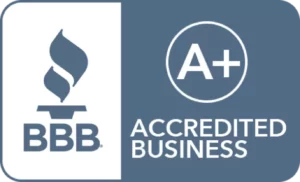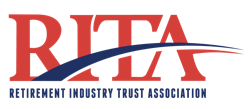Investment diversity in a Self-Directed IRA or Solo 401(k) is essentially a retirement portfolio that holds a variety of assets. This can include a combination of traditional assets, such as stocks and bonds, along with alternative assets, like real estate.
Why is investment diversity so important? Many long-term investors may remember the 2008 financial crisis. Those who had their retirement funds within the financial markets, such as stock, took a pretty hard financial hit. Whereas, investors whose retirement accounts held a variety of investments (including assets within the stock market) did not suffer as much. The reason for this is simple: an alternative investment – for example, precious metals – will not react to the same economic event as stocks. You better protect your retirement funds when the assets within the account do not move in the same direction.
Ultimately, this is how you benefit from a self-directed retirement plan. You gain the true meaning of investment diversity.
Now that you know you should diversify your assets, what asset classes make the most sense to invest in?
Investments You Can Make with a Self-Directed Retirement Plan
1. Stocks
Stock, equities, mutual funds, exchange traded funds (ETFs) are the most common investments for retirement accounts. It is estimated that close to 97% of all retirement investments are invested in stocks and equities. The tax advantage of investing in stocks with my retirement account is that all income and gains generated by the investment would not be subject to immediate tax.
2. Foreign currencies
The main benefits of investing retirement funds in foreign currency is investment diversity and the ability to gain access to the world’s largest liquidity market. However, foreign currency investments are highly volatile and risky and can involve huge price swings.
3. Precious metals
The most popular IRS approved precious metal to purchase is gold. Investors typically use retirement funds to invest in gold and other IRS approved precious metals as a hedge against a falling equities market or a security blanket against inflation. The downside of investing retirement funds in previous metals is that the asset does not generate any income or returns, such as real estate or dividend paying stocks.
It’s important to note that all IRS approved precious metals must be held in the physical possession of a U.S. depository.
4. Real estate
Real estate is the most popular alternative asset investment for retirement account holders. It is estimated that close to 70% of self-directed IRA investors have made real estate investments. The advantage of using retirement funds to make real estate investments is investment diversity and the ability to invest in a hard asset which is a hedge against inflation, an asset that can generate steady rental income stream. For some investors, it is more trustworthy than Wall Street. Furthermore, in general, all income and gains generated by the real estate investment will flow back to the IRA without tax.
5. Bonds
A bond is a debt security. Bonds are considered a safe fixed income type investment. When you buy a bond, you are lending to the issuer, which may be a government, municipality, or corporation. In return, the issuer promises to pay you a specified rate of interest during the life of the bond and to repay the principal (known as face value or par value of the bond) when it “matures,” or comes due after a set period of time. Bonds provide a predictable income stream. Typically, bonds pay interest twice a year. If the bonds are held to maturity, bondholders get back the entire principal, so bonds are a way to preserve capital while investing.
In addition, bonds can help offset exposure to more volatile stock holdings. The tax advantage of investing in stocks with my retirement account is that all income and gains generated by the investment would not be subject to immediate tax.
6. Private business/placements
The main advantage of using retirement funds to invest in private business/investment funds is the potential for large returns. Investing in private businesses and private investment funds can be risky as there is no guaranteed return, such as a bond, and in many cases the investment is not regulated by the SEC or other federal or state regulator.
7. Tax liens/deeds
When you purchase any tax lien certificate, you can gain exposure to real estate. Investors can buy the liens in an auction and pay the amount of taxes owed in return for the right to collect back that money plus an interest payment from the property owner. Interest rates vary, depending on the jurisdiction or the state. Successful bidders at a tax lien sale usually have only 24 to 72 hours to pay the full amount of their winning bid making using a self-directed IRA with checkbook control a good option.
The process of buying tax deeds or a tax deed state is simpler than tax liens. When you buy a tax deed, you purchase the actual property, which makes the process simple in most Tax Deed States. When you purchase a tax deed, you own the property free and clear.
8. Cryptocurrency
Cryptocurrency is a form of digital money that is designed to be secure and anonymous in some circumstances. It uses cryptography to track purchases and transfers. From a federal income tax standpoint, cryptocurrency, such as Bitcoin or Litecoin, are not considered as currency, but as a capital asset, subject to either short-term or long term capital gains tax rates.
Crypto is considered highly risky because of their volatility. For example, in 2019, Bitcoin’s value has increased over 200%. The benefit of investing in cryptocurrency is investment diversity, and, best of all, all gains from any cryptocurrency investment would not be subject to immediate tax.
9. Notes/loans
Using retirement funds to make a loan to a non-disqualified person is a popular investment option because of the steady income stream associated with a lender. A loan can be secured or not-secured. Many private lenders see significant returns on their investments. Private lending typically provides strong returns, because one can set high rates and expect consistent results. The average rate of returns in the real estate market is approximately 10%. The tax advantage of using retirement funds to make hard money loans, is that all interest and principle from the loan would flow back to the IRA without tax.











